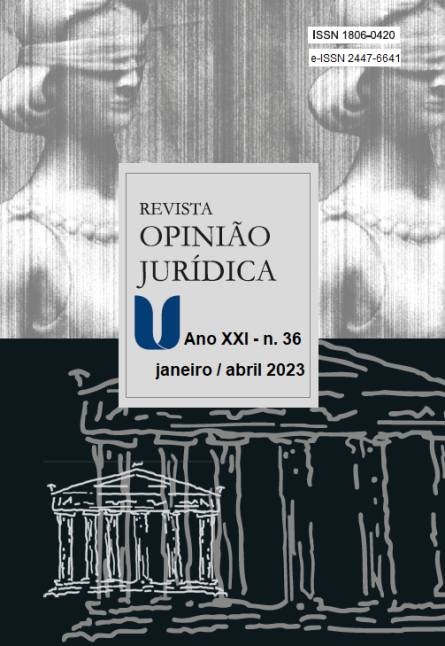FREEDOM OF CONTRACT AND JUDICIAL INTERVENTION: DOES THE COURT HAVE THE RIGHT?
DOI:
https://doi.org/10.12662/2447-6641oj.v21i36.p205-221.2023Palavras-chave:
corrective function, freedom of contract, Indonesia, judicial interventionResumo
Objective: The paper aims to elaborate on the implementation of freedom of contract and judicial intervention taken by the Indonesian judiciary institutions in the event that a contract does not reflect the balance of rights and obligations of the parties. It also discusses several cases that expose the involvement of the court in upholding justice by intervening in the contract.
Methodology: The study is doctrinal legal research. It employed the statutory, conceptual, and case approach with prescriptive data analysis.
Results: The study reveals that the freedom of contract is not limitless. In certain conditions, the court can intervene the implementation of the contract in case the court found the party's position is inequal and led to the harmful consequences that detriment a certain party.
Contributions: It explores the restrictions of the freedom of contract principle by comprehensively explaining the reasoning behind its enforcement under the court’s authority. In addition, it clarifies the court's justification to perform a corrective function towards inequalities in contract performance.
Downloads
Publicado
Como Citar
Edição
Seção
Licença
TRANSFERÊNCIA DE DIREITOS AUTORAIS
A submissão de artigo à apreciação da Equipe Editorial da Revista Opinião Jurídica implica, por este mesmo ato, a cessão, por parte do(s) autor(ES), para o Centro Universitário Christus – UNICHRISTUS, da referida OBRA para fins de reprodução, divulgação, distribuição, impressão, publicação e disponibilização, em qualquer forma ou meio que exista ou venha a existir, nos termos do art. 49 e os seguintes da Lei 9.610/98.
Parágrafo Primeiro. A cessão, objeto deste Termo, é feita a título não exclusivo e gratuito, abrangendo a totalidade da OBRA.
Parágrafo Segundo. A UNICHRISTUS poderá disponibilizar, para fins didáticos, a OBRA no todo ou em partes, vedada a alteração de seu conteúdo textual, ressalvadas correções e formatações que se fizerem necessárias.
Parágrafo Terceiro. A cessão é válida em quaisquer países, em língua portuguesa ou tradução, a critério da UNICHRISTUS.
DAS RESPONSABILIDADES
Ao submeter(em) artigo de sua lavra, o autor (e co-autores, se houver) assume(m), por este ato, a responsabilidade exclusiva pela integralidade do conteúdo da obra de sua autoria. Dessa forma, quaisquer medidas judiciais ou extrajudiciais concernentes ao seu conteúdo serão de sua inteira responsabilidade.
Parágrafo único. Em caso de pluralidade de autores, considera-se solidária a responsabilidade, ressalvadas as provas em contrário.































